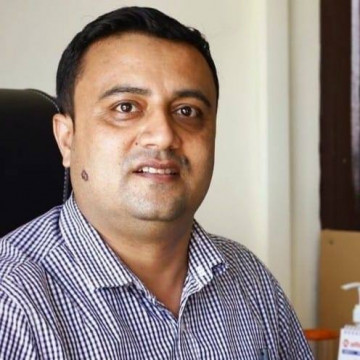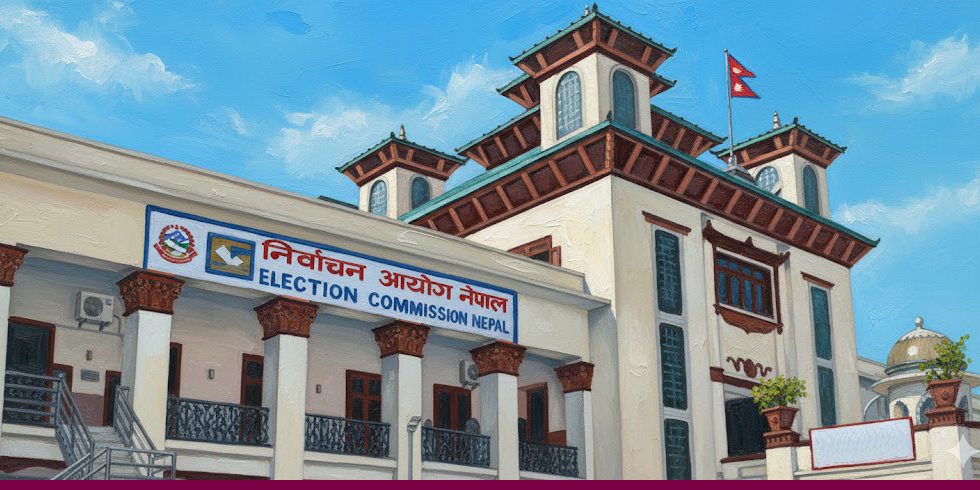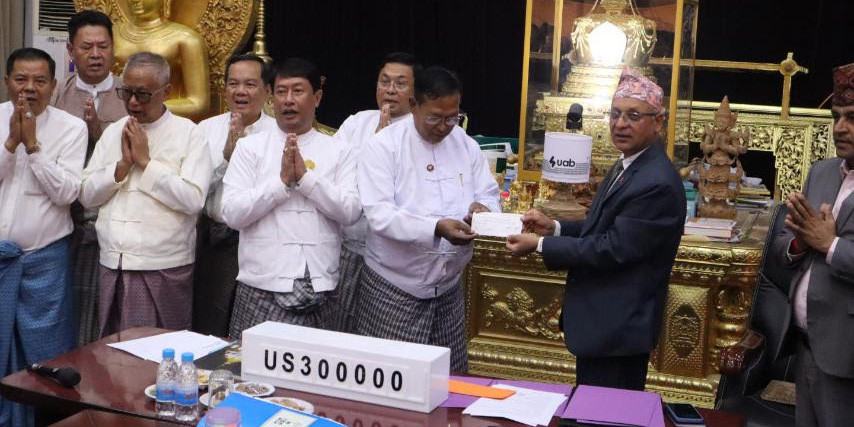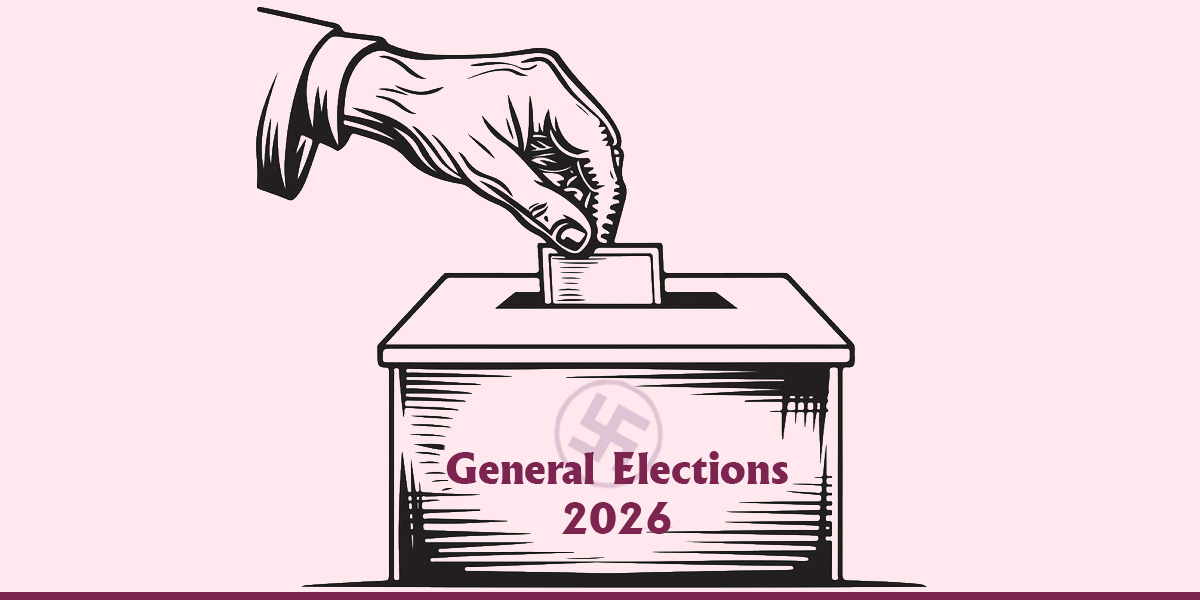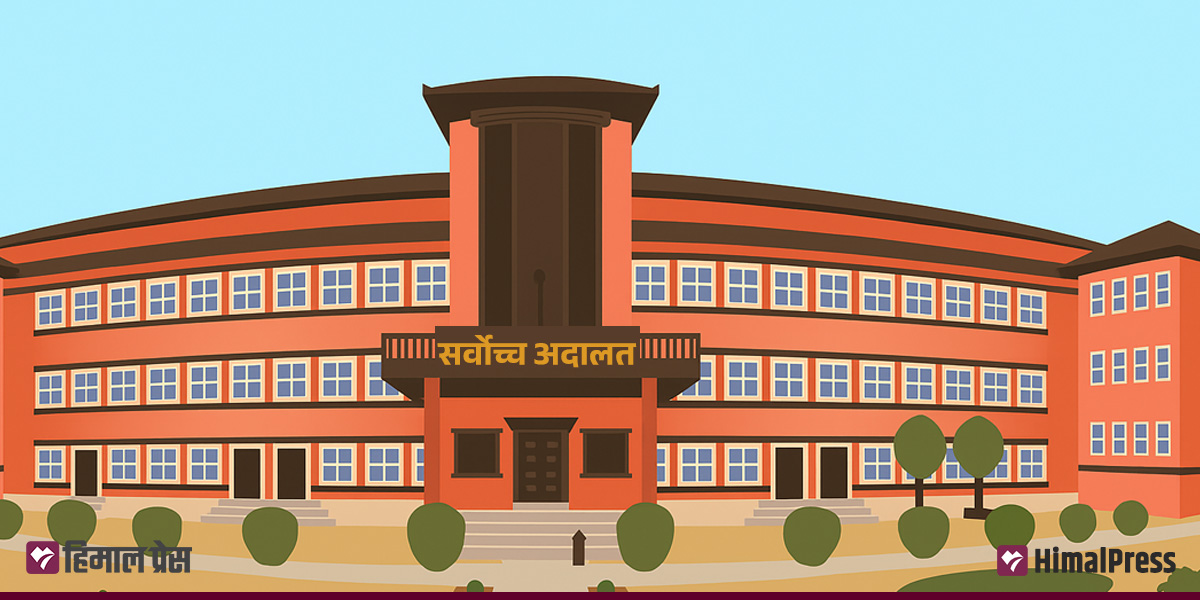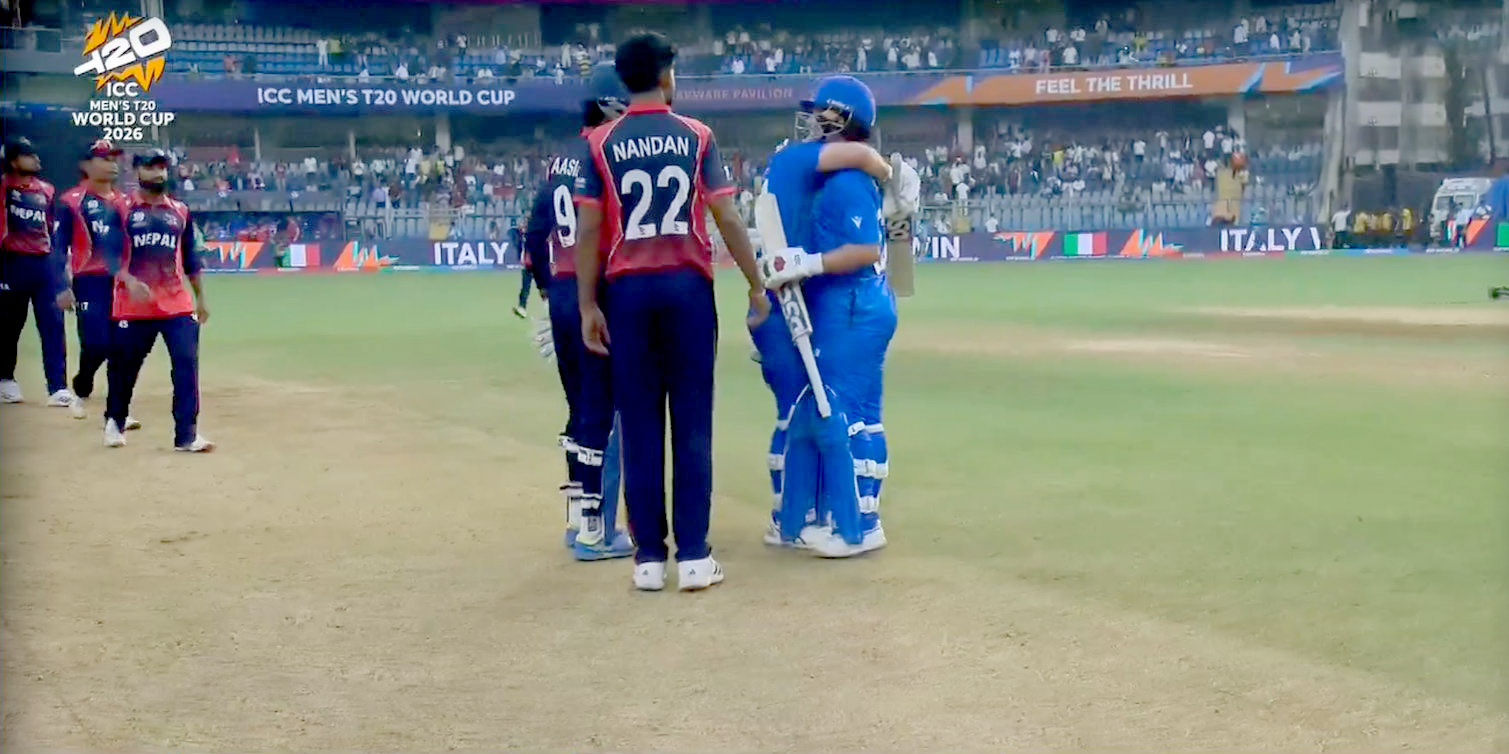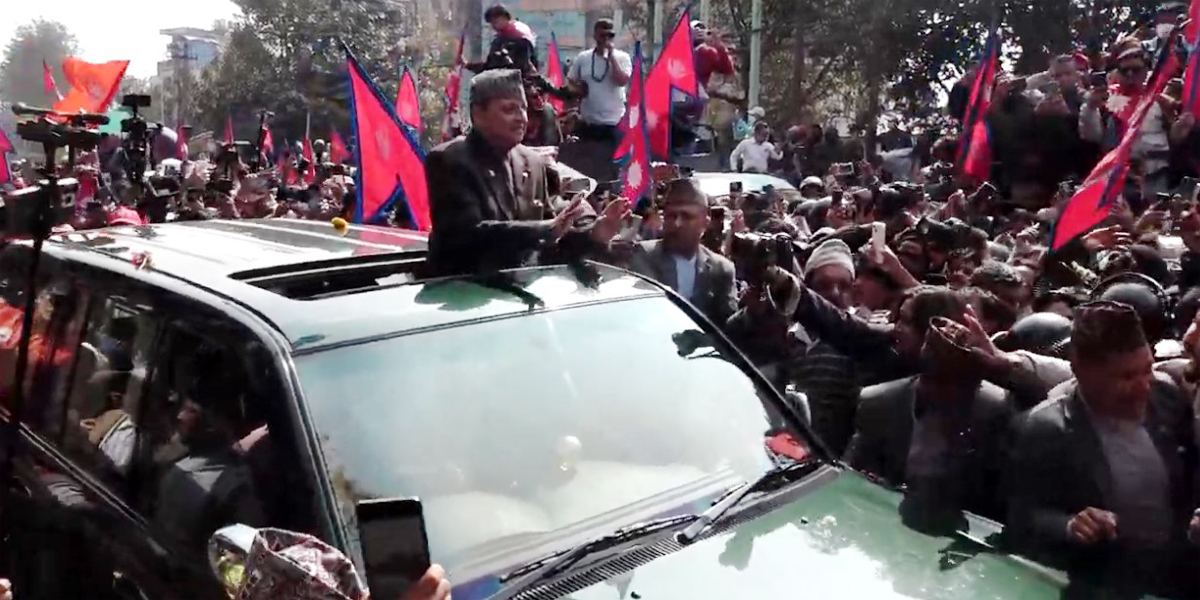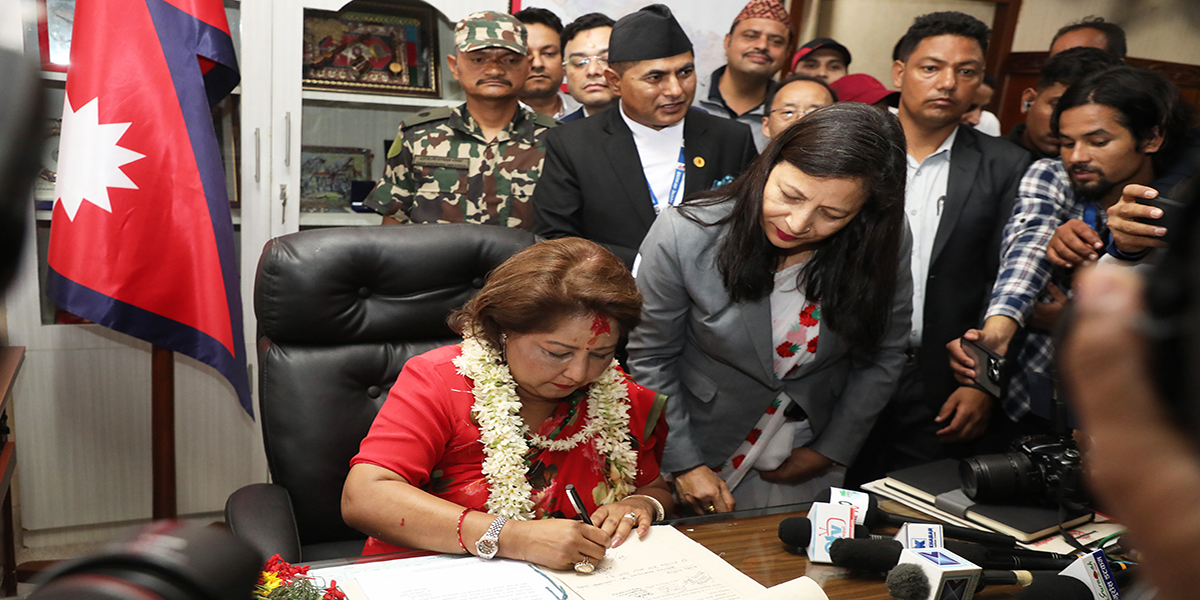 Foreign Minister Dr Arzu Rana. (Photo: RSS)
Foreign Minister Dr Arzu Rana. (Photo: RSS)
KATHMANDU: On the day KP Sharma Oli’s new coalition government was formed, three major Indian daily newspapers published editorials about Nepal’s political situation. Editorials published in The Hindu, Hindustan Times, and Indian Express noted that there has been no political stability in Nepal since the political changes of 1990. These editorials have made it clear that India is paying close attention to Oli’s appointment as Prime Minister.
China’s interests are also similar. A day before the new government was formed, a political delegation from the northern neighbor arrived in Kathmandu. The delegation held discussions with stakeholders and gathered information on government formation. According to sources, the delegation even suggested that communist parties move forward together. Not just the two close neighbors, the United States is also closely monitoring how Nepal’s political developments are unfolding.
In this situation, Dr Arzu Rana Deuba from the main coalition partner, Nepali Congress (NC), has taken charge of the Ministry of Foreign Affairs. How she pursues relations with the neighboring countries and other powers has become a matter of concern for all.
More Challenging than Being ‘First Lady’
In the past, Rana, the spouse of former Prime Minister and NC President Sher Bahadur Deuba, was accused of being a ‘money manager’ when she was the first lady. First and foremost, it should be clear to her that fulfilling responsibilities and conducting diplomacy as the first lady is different from her current role. There is no doubt about her educational qualifications and capabilities, given her long leadership experience in NGOs and involvement in different businesses. While it can not be said that Rana has no diplomatic experience at all, she lacks direct experience. Therefore, there are concerns about how she will run the affairs at the ministry.
The foreign ministry should be in direct contact with the Prime Minister. Many foreign affairs tasks are directly handled by the Prime Ministers themselves. Since UML Chairperson KP Sharma Oli is the Prime Minister, it is natural for principles and approaches in external relations to differ between the two. Issues arising from their cooperation will gradually come to light. The situation was similar in the past during Sushil Koirala’s government when UML’s Mahendra Bahadur Pandey was the foreign minister.
During Indian Prime Minister Narendra Modi’s visit to Lumbini, Rana’s engagement alongside her husband and Prime Minister Sher Bahadur Deuba was not seen as appropriate by many. That is not how diplomacy works. Engagements in religious activities to gain India’s favor have revealed Rana’s diplomatic foundation and preferences. By tying ‘rakhi’ to Vijay Chauthaiwale, head of BJP’s foreign affairs department, Rana tried to advance religious diplomacy. This is also a test of how strong that thread of rakhi is. While one faction of India’s ruling party liked this approach, the main opposition, which is growing stronger, and bureaucracy have not particularly favored it. The minister may think she can easily fix such minor issues, but it is not that simple. Several layers of the Indian government operate in Nepal. Now China is also practicing the same. American interest is also not different either. The US has been taking Nepal as a reliable friend. This way, it is easier for it to observe developments in this region. From her experience working with NGOs, Rana knows how to appease the heads of embassies and aid missions here. But she needs to be clear that such a practice does not work in diplomacy.
Rana has been accused of being involved in sending Nepali citizens as Bhutanese refugees for resettlement in the US and other countries. Many politicians and bureaucrats refer to her as a key player in the Bhutanese refugee scam. Some have gone to the extent of saying that the NC-UML coalition was formed to shield Rana, while others say the issue has been exaggerated. How Rana defends herself from such accusations remains to be seen.
High Expectations
Rana needs to make bold decisions and practice diplomacy like the leaders of her party like Sushil Koirala and Girija Prasad Koirala. She needs to focus on work that brings long-term benefits. For this, she needs to interact more with staff, listen to them, and think seriously when making decisions. Otherwise, the staff will run diplomacy. If staff dominance is allowed, diplomacy cannot move forward.
There is a long list of ministers who have worked by taking foreign service staff into confidence. Kamal Thapa, KP Oli himself, Dr Prakash Chandra Lohani, Ramesh Nath Pandey, Dr Ram Sharan Mahat and Dr Prakash Sharan Mahat are some of them.
There were hopes that Narayan Kaji Shrestha, her predecessor in the foreign ministry, would bring improvements to the diplomatic field. However, he could not deliver much. NP Saud, the foreign minister before Shrestha, was engaged more in flattering foreigners. He probably did not understand diplomacy properly. Ministry staffers comment that Saud’s tenure was a waste of time. So if Rana wants to be a top diplomat, she needs to run the ministry systematically rather than indulging in flattery and staying within a limited circle. In other countries, the foreign minister is considered the second person in the government after the Prime Minister. Rana needs to keep this in mind while leading the ministry.
Time to Prove Herself
Rana is a good communicator and has no language issues. She also has a good network of contacts. If she wants to prepare herself to become the first female Prime Minister of the country, she needs to bring maturity to diplomacy. For that, she needs to listen to many people and then make decisions. Listening to critics rather than confidants and her people will be fruitful for her.
“A person who is at the top level in politics and can implement decisions can improve foreign affairs. Although studious, Rana doesn’t have direct diplomatic experience. However, she has accompanied her husband Deuba to different international forums and diplomatic engagements. Rana needs to show that skills and experiences in foreign affairs,” says former Foreign Minister Dr. Bhesh Bahadur Thapa. “It’s not enough to just listen to staff or political figures. She needs to focus on improving the ministry’s weaknesses.”
Thapa suggests reducing the number of Nepali embassies across Europe. “The work progress of ambassadors in those countries is zero. Since most Nepali embassies don’t have much influence, it would be better to have fewer but excellent embassies. Having more embassies doesn’t make diplomacy stronger,” he said, adding that Rana should close Nepali embassies in Oman and Bahrain.
Experts say Nepal doesn’t need embassies in Denmark, Canada and Portugal as well. There is no justification for the United Nations mission in Austria (Vienna) either. When a country like Singapore is practicing diplomacy by having a small number of missions, it is not necessary for Nepal to spend recklessly.
“We are spending a huge amount of money to operate embassies in the same countries we take grants and loans from. In such a situation, how can they keep providing support to us?” Dr Thapa said.
After Nepal started the process of opening its embassy in Canada, the Canadian High Commissioner in New Delhi came to Nepal and urged our leaders to reconsider the decision. Nepal eventually opened its embassy in Canada. However, bilateral cooperation with Canada has not advanced much.
Appointments and transfers
Another issue that Minister Rana needs to pay attention to is the appointment of ambassadors and the evaluation of their performances. Many often say that the work performance of politically appointed ambassadors is not satisfactory. But have we assessed the performance of ambassadors from the foreign service? Rana should also look into that issue. Prime Minister KP Sharma Oli is clear on this. Oli has been saying that allocating half of the quota of ambassadors for foreign service officers is unjustified. Many ambassadors picked from outside the foreign service have performed well. What matters most is that the person making the pick needs to have the right mentality.
There is also a need to conduct a study before recommending ambassadors. Our foreign service is not as excellent and sharp as in India. Since foreign service staffers are not provided with the necessary training and exposure, they cannot hone their skills. Staffers, who enjoy good rapport with political leaders, often get good postings. We have seen numerous instances of staffers returning from, say the US, transferred back to the US. Criteria have been prepared for diplomatic postings but are often flouted.
Although the foreign ministry is considered the pivot of diplomacy, there are some limitations in its work. The works of the Foreign Aid Coordination Division of the Finance Ministry sometimes overlap with that of the foreign ministry. That is why some experts have suggested keeping foreign aid within the ambit of the foreign ministry by following the South Korean model. It would ensure a one-door system for all diplomatic needs.
Former Ambassador Dr Dinesh Bhattarai says many improvements were seen in diplomacy during Sushil Koirala’s time. “After that, no one in foreign affairs has been able to do commendable work. Those leaders used to deliver even when they were in a difficult position,” Bhattarai said. “A review of the ministry’s work is necessary. The minister needs to pay attention to how work is done there.”
If Rana can also implement things by maintaining silence in diplomacy as skillfully as her spouse Sher Bahadur Deuba, it will benefit the country. If Rana can now stand firm in Nepal’s interests, advance the principle of equality and adopt economic diplomacy, it will be the first step in the country’s interest.
When assuming the ministry as the fourth female foreign minister, Rana was welcomed by Seva Lamsal, the first female foreign secretary of the country. The coordination and collaboration between these two leaders will shape the future of the country’s diplomacy.
“Ours is a small landlocked nation between big countries. Our ancestors have preserved our country until now. We need to maintain it as an independent and sovereign nation for future generations as well,” Rana stated in her first address as Foreign Minister. She noted that Nepal does not have a large army and emphasized that adopting an independent foreign policy based on the principles of Panchsheel is a good approach. How much emphasis she places on implementation will depend on her.
Her statements are correct as our geography has changed. But it all will depend on how she will implement it. If she speaks anything for popularity, there will be problems. If she realizes this is a specialized ministry and moves forward only after needful study, she will achieve her goals.

